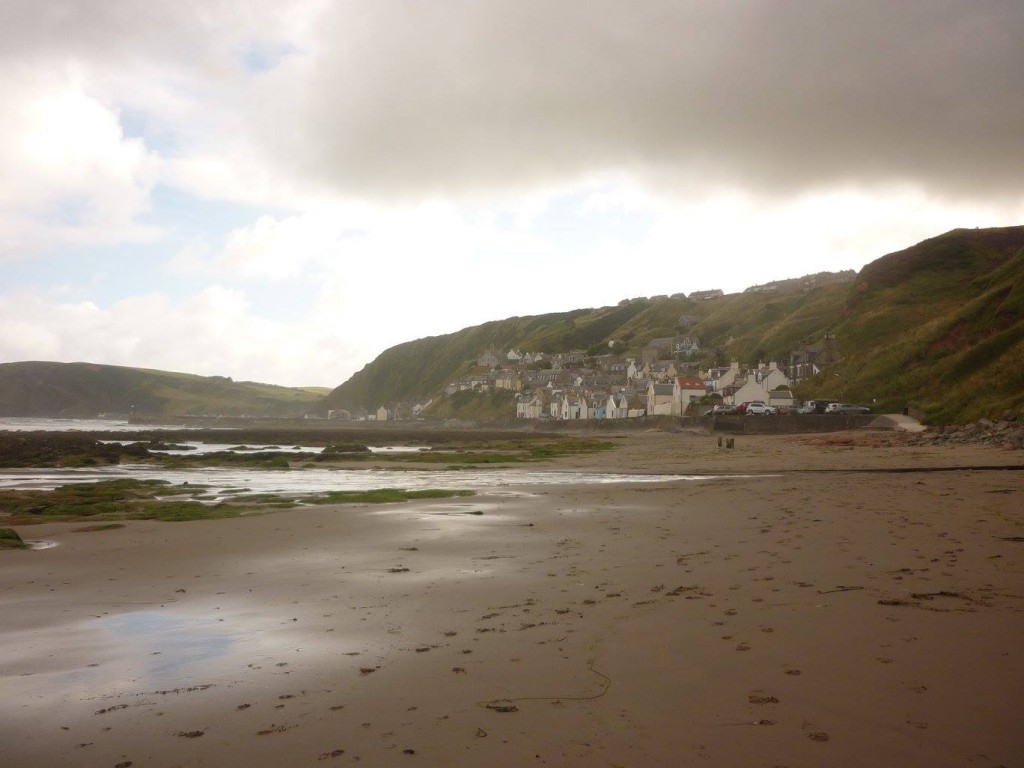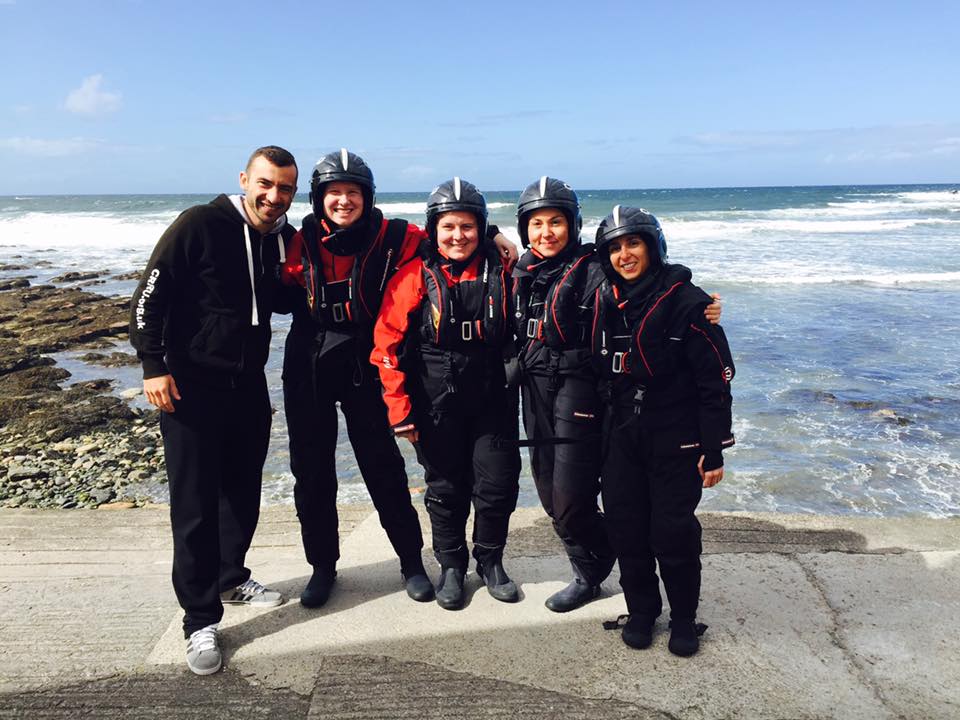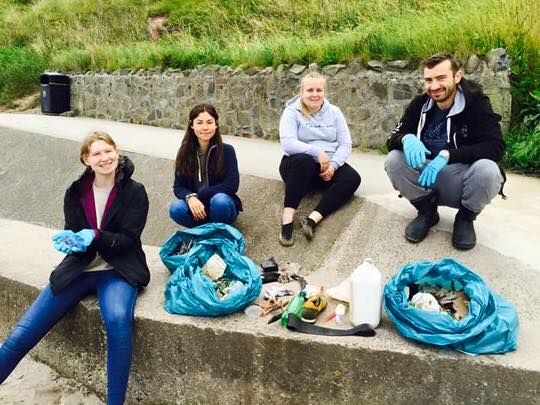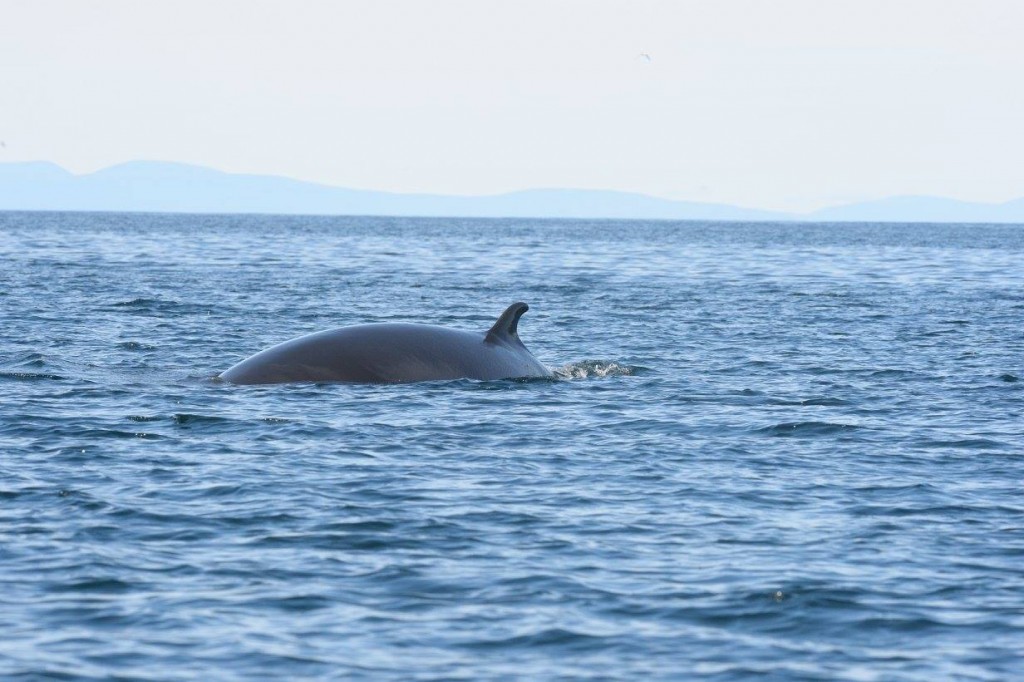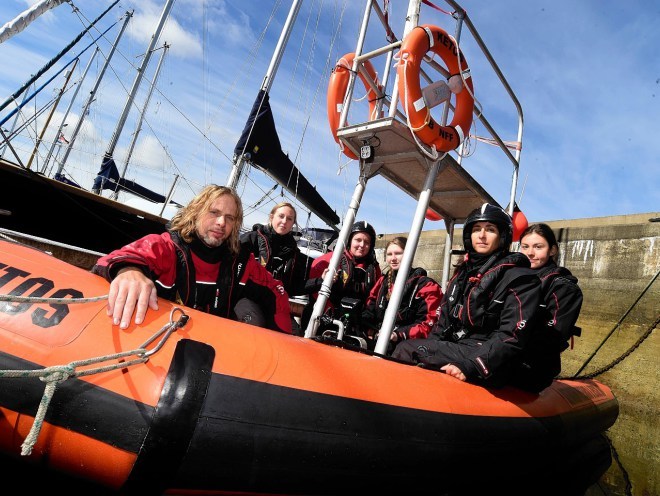Marine Life & Conservation
Cetaceans and conservation: My summer with the CRRU
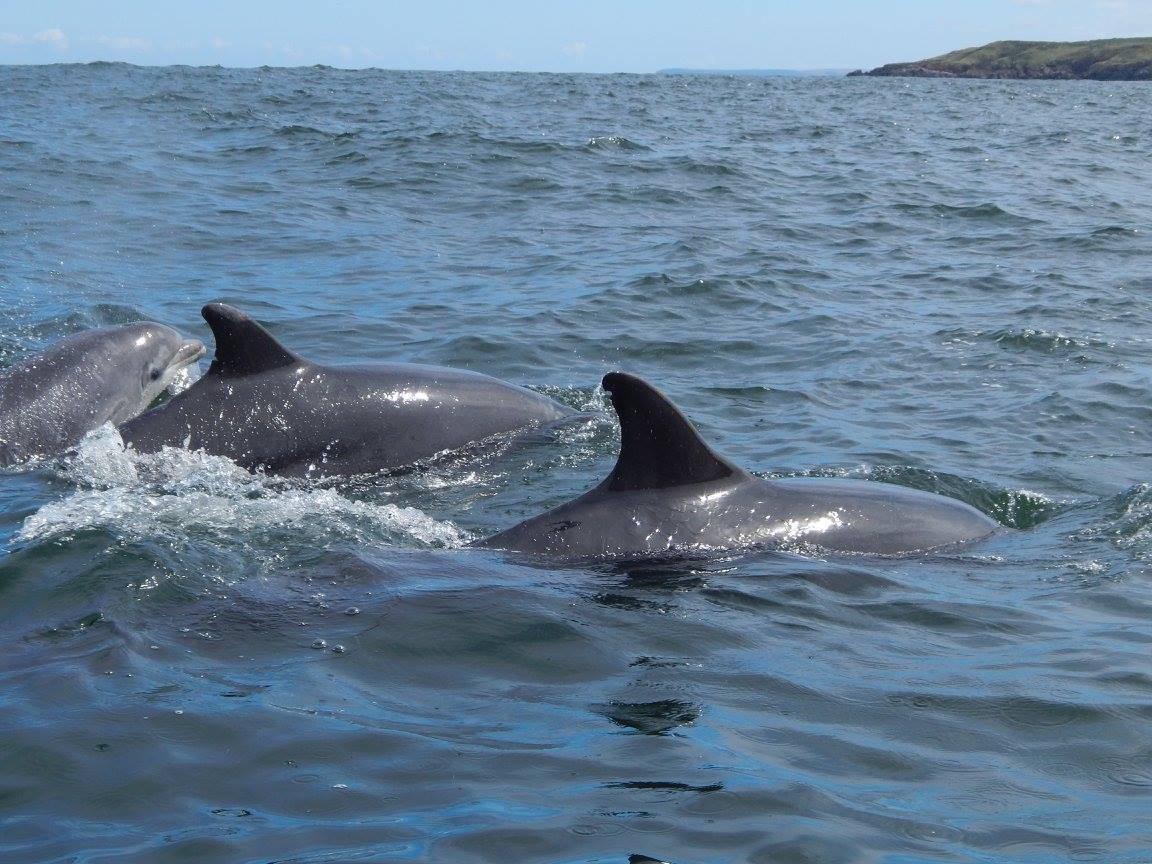
Summer breaks are the opportunity for people to explore new areas and to relax in the sunshine. Mine however took a different angle, spending it in a small village in the north of Scotland. The north east Scottish coastline has a high biodiversity of marine mammals, and provides the perfect setting for innovative work in marine conservation.
The Banff-based CRRU (Cetacean Research & Rescue Unit) was set up in 1997, growing in size thanks to its unstoppable group of dedicated volunteers. Come rain or shine, they are working to improve our knowledge of cetaceans (whales, dolphins and porpoises) in our UK waters, from the ever-popular bottlenose dolphin to the lesser known minke whale.
So where do I start? My summer with the CRRU was a completely eye opening experience. It was my first volunteer experience in this field as a research intern, and I saw more species than I could possibly list; rare birds and marine mammals which people only dream of seeing. But I also felt like I made a difference. Even in my short time there. Not a single day there was ever the same, allowing me to develop different skills and learn different tactics for conservation.
The first few days I was there, a lot of our time was used to learn. Learning about the charity, how to collect data, about the species we would be working with and why what is being done is so important. This allowed the research teams to bond and learn how to work together quickly and effectively so when we finally found the animals we could complete the necessary data forms quickly, thereby causing minimum disruption to the study animals.
The rest of my time was spent between conservation, fund-raising, research and of course having fun! We would spend our days doing a variety of different activities, from beach cleans to watching gannet colonies from the cliff tops.
The charity has an unfathomable amount of publications on the work that they do, and their papers, research and data are used globally for the protection of the species studied. The charity’s science team works tirelessly throughout the summer in Scotland to collect data to improve current knowledge of the whales and dolphins of the Moray Firth. So far, their work has been invaluable to the protection of minke whales in north-east coastal waters resulting in recommendation for the first ever MPA (Marine Protected Area) for these coastal cetaceans in the UK.
Due to being a relatively small charity, the CRRU has limited funding, however. Currently all of their work is being carried-out from one of two small, rigid inflatable boats, but ongoing fundraising is being conducted for a new, much larger vessel which would allow the charity to continue its long-term monitoring studies. The current boats, first used in 2000, are becoming too old and are struggling to keep up with the increasing workload. The research team has a wide variety of work they are attempting to do from the boats when they meet their study species. Currently they are attempting to get biopsies from minke whales to allow them to learn more about what the whales are eating and evaluate the levels of pollutants in their bodies and the surrounding marine environment. They also do behavioural studies and attempt to do temporary tagging of whales so they can study their movements and diving behaviour, which is all very relevant to abundance estimates currently used to designate unfavourable whaling quotas to neighbouring whaling countries such as Norway and Iceland, that sadly still harvest these whales. The new boat will also be central to the CRRU’s emergency response teams for live-stranded whales and dolphins across Scotland. The larger boat will allow the rescue teams to carry more equipment and operate in often inclement and unfavourable sea conditions.
While I was with the CRRU, I was able to gain a qualification in Marine Mammal Rescue, which means I can now act as a volunteer Marine Mammal Medic, assisting in ongoing UK rescue efforts for sick or stranded whales and dolphins which inevitably get into trouble around the UK coastline each year. The course, which is made up of both practical and theory based sessions is run by the charity as a free service to interested volunteers. So far they have trained over 1,600 people in Scotland. They don’t do this work for the research but to look after the welfare of the animals. The CRRU have a 24/7 line for people to call if they find a stranded marine animal, and they operate the only dedicated specialist response team for whales, dolphins and porpoises in Scotland. For more information about the charity’s rescue efforts, Check out their website here.
Don’t just take my word for it – to me and many people who have joined the CRRU as a volunteer intern, this is an amazing opportunity with fantastic people who know so much in this field. So why don’t you try it out too? Summer placements are now being accepted for 2017 – click here to find out more.
If you would like to donate towards the new boat, you can also help by clicking on their fundraising page here.
Blogs
The Ocean Cleanup Breaks 10,000,000 KG Barrier

The Ocean Cleanup, the global non-profit project, has removed a verified all-time total of ten million kilograms (22 million lbs.) of trash from oceans and rivers around the world – approximately the same weight as the Eiffel Tower.
To complete its mission of ridding the oceans of plastic, The Ocean Cleanup uses a dual strategy: cleaning up the Great Pacific Garbage Patch (GPGP) to remove the plastic already afloat in the oceans, while stopping the flow of plastic from the world’s most polluting rivers.
Through cleaning operations in the GPGP and in rivers in eight countries, the cumulative total of trash removed has now surpassed ten million kilograms. This milestone demonstrates the acceleration of The Ocean Cleanup’s impact, while underlining the astonishing scale of the plastic pollution problem and the need for continued support and action.
While encouraging for the mission, this milestone is only a staging point: millions more tons of plastic still pollute our oceans and The Ocean Cleanup intends to continue learning, improving and innovating to solve this global catastrophe.
This announcement comes as governments from around the world meet to continue negotiations to develop a new legally binding instrument to end plastic pollution at INC4 in Ottawa, Canada. Representatives of The Ocean Cleanup will be in attendance and the organization will be urging decision-makers to collaborate towards a comprehensive and ambitious global treaty which addresses plastic at all stages of its life cycle and in all marine environments worldwide, including in areas beyond national jurisdiction.
It is encouraging to see that the need for remediation is reflected in the various options for potential treaty provisions. It is essential that the final treaty contains clear targets for the remediation of legacy plastic pollution, and reduction of riverine plastic emissions.
Tackling plastic pollution requires innovative and impactful solutions. The treaty should therefore incentivize the innovation ecosystem by fostering innovations that make maximal use of data, technology and scientific knowledge – such as those designed and deployed by The Ocean Cleanup.
‘After many tough years of trial and error, it’s amazing to see our work is starting to pay off – and I am proud of the team who has brought us to this point.’ said Boyan Slat, Founder and CEO of The Ocean Cleanup. ‘While we still have a long way to go, our recent successes fill us with renewed confidence that the oceans can be cleaned.’
The Ocean Cleanup was founded in 2013 and captured its first plastic in 2019, with the first confirmed catch in the GPGP coming soon after the deployment of Interceptor 001 in Jakarta, Indonesia. After surpassing one million kilograms of trash removed in early 2022, the non-profit project has since progressed to the third iteration of its GPGP cleaning solution, known as System 03, and a network of Interceptors currently covering rivers in eight countries, with more deployments set for 2024.
About The Ocean Cleanup
The Ocean Cleanup is an international non-profit organization that develops and scales technologies to rid the world’s oceans of plastic. They aim to achieve this goal through a dual strategy: stemming the inflow via rivers and cleaning up the legacy plastic that has already accumulated in the ocean. For the latter, The Ocean Cleanup develops large-scale systems to efficiently concentrate the plastic for periodic removal. This plastic is tracked and traced through DNV’s chain of custody model to certify claims of origin when recycling it into new products. To curb the tide via rivers, The Ocean Cleanup has developed Interceptor™ solutions to halt and extract riverine plastic before it reaches the ocean. Founded in 2013 by Boyan Slat, The Ocean Cleanup now employs a broadly multi-disciplined team of approximately 140. The foundation is headquartered in Rotterdam, the Netherlands.
For more information, visit: theoceancleanup.com and follow @theoceancleanup on social media.
Marine Life & Conservation
Steve Backshall to headline Shark Trust’s flagship event: For the Love of Sharks

Join a host of amazing, shark loving, speakers including Steve Backshall and the Shark Trust team for an evening celebrating shark conservation at the Royal Geographical Society in London this November.
Date: 29th November 2024
Time: 6-10pm
Location: Royal Geographical Society, London
Tickets: https://www.sharktrust.org/Event/flos24
The event will be a celebration of all things shark. Those lucky enough to get hold of tickets will hear from engaging guest speakers with a passion for sharks.
The line-up includes (*subject to change if unforeseen circumstances arise)
Steve Backshall: One of television’s busiest presenters, BAFTA award-winning wildlife expert Steve has been passionate about the wild world ever since he was young.
Steve’s impressive TV career has taken him all around the world, investigating a wide array of species and environments. Steve has filmed over 100 hours of children’s wildlife programmes with the BAFTA award winning Deadly 60 franchise and recently, with Sky Nature, for his new series ‘Whale with Steve Backshall’. He has been a patron for the Shark Trust for 10 years.
Simon Rogerson: is a photojournalist specialising in natural history, diving and the sea.
He is editor of SCUBA magazine, the official journal of the British Sub-Aqua Club. Simon started his career as a crime reporter but gravitated towards his ‘less depressing’ interest in underwater exploration, joining the staff of DIVE magazine in 1999. In 2005 he was named ‘Editor of the Year’ in the PPA’s Independent Publishing Awards. Simon also works as a freelance writer, contributing frequently to the Sunday Times and Telegraph, in addition to BBC Wildlife, Esquire, and a host of international diving magazines. He is the author of a book, Dive Red Sea, published by Ultimate Sports. Now based in Berkshire, Simon has been a Patron of the Shark Trust for 20 years.
More speakers to be announced soon. Head to the Shark Trust website to learn more.
The evening will also allow guests the final chance to see the Oceanic 31, shark art exhibition. Some of the artwork will be auctioned/raffled at the event, while the rest will be auctioned online to raise money for the Shark Trust Oceanic Programme.
For the Love of Sharks is an evening with something for everyone who is interested and fascinated by sharks. Join the Shark Trust, their Patrons, Trustees and Staff, along with a host of supporters for this celebration of shark conservation.
For more information or to buy a ticket: https://www.sharktrust.org/Event/flos24
-

 News3 months ago
News3 months agoCapturing Critters in Lembeh Underwater Photography Workshop 2024: Event Roundup
-

 Marine Life & Conservation Blogs3 months ago
Marine Life & Conservation Blogs3 months agoCreature Feature: Swell Sharks
-

 Blogs2 months ago
Blogs2 months agoMurex Resorts: Passport to Paradise!
-

 Gear Reviews3 weeks ago
Gear Reviews3 weeks agoGEAR REVIEW – Revolutionising Diving Comfort: The Sharkskin T2 Chillproof Suit
-

 Blogs2 months ago
Blogs2 months agoDiver Discovering Whale Skeletons Beneath Ice Judged World’s Best Underwater Photograph
-

 Gear Reviews3 months ago
Gear Reviews3 months agoGear Review: Oceanic+ Dive Housing for iPhone
-

 News2 months ago
News2 months agoPADI Teams Up with Wellness Brand Neuro to Drive Ocean Change and Create a Blue State of Mind
-

 Marine Life & Conservation2 months ago
Marine Life & Conservation2 months agoSave the Manatee Club launches brand new webcams at Silver Springs State Park, Florida


